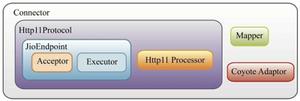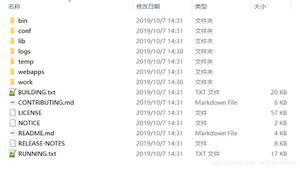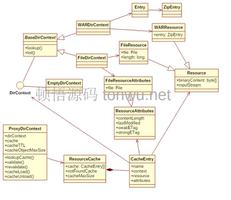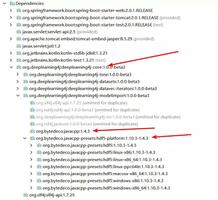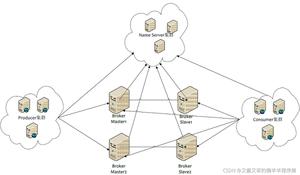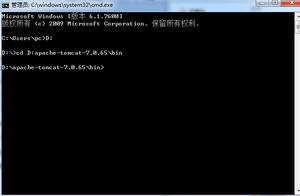tomcat多端口搭建

首先po出 https://pan.lanzou.com/i06z9sd 搭建好的tomcat 多端口例子 如有疑问 可参看
最主要的是 conf\service.xml里 多个service的配置
<Service name=
"Catalina"
>
<!--The connectors can use a shared executor, you can define one or more named thread pools-->
<!--
<Executor name=
"tomcatThreadPool"
namePrefix=
"catalina-exec-"
maxThreads=
"150"
minSpareThreads=
"4"
/>
-->
<!-- A
"Connector"
represents an endpoint by which requests are received
and responses are returned. Documentation at :
Java HTTP Connector: /docs/config/http.html (blocking & non-blocking)
Java AJP Connector: /docs/config/ajp.html
APR (HTTP/AJP) Connector: /docs/apr.html
Define a non-SSL/TLS HTTP/
1.1
Connector on port
8080
-->
<Connector port=
"8080"
protocol=
"HTTP/1.1"
connectionTimeout=
"20000"
redirectPort=
"8443"
/>
<!-- A
"Connector"
using the shared thread pool-->
<!--
<Connector executor=
"tomcatThreadPool"
port=
"8080"
protocol=
"HTTP/1.1"
connectionTimeout=
"20000"
redirectPort=
"8443"
/>
-->
<!-- Define a SSL/TLS HTTP/
1.1
Connector on port
8443
This connector uses the NIO implementation that requires the JSSE
style configuration. When using the APR/
native
implementation, the
OpenSSL style configuration is required as described in the APR/
native
documentation -->
<!--
<Connector port=
"8443"
protocol=
"org.apache.coyote.http11.Http11NioProtocol"
maxThreads=
"150"
SSLEnabled=
"true"
scheme=
"https"
secure=
"true"
clientAuth=
"false"
sslProtocol=
"TLS"
/>
-->
<!-- Define an AJP
1.3
Connector on port
8009
-->
<Connector port=
"8009"
protocol=
"AJP/1.3"
redirectPort=
"8443"
/>
<!-- An Engine represents the entry point (within Catalina) that processes
every request. The Engine implementation
for
Tomcat stand alone
analyzes the HTTP headers included with the request, and passes them
on to the appropriate Host (virtual host).
Documentation at /docs/config/engine.html -->
<!-- You should set jvmRoute to support load-balancing via AJP ie :
<Engine name=
"Catalina"
defaultHost=
"localhost"
jvmRoute=
"jvm1"
>
-->
<Engine name=
"Catalina"
defaultHost=
"localhost"
>
<!--For clustering, please take a look at documentation at:
/docs/cluster-howto.html (simple how to)
/docs/config/cluster.html (reference documentation) -->
<!--
<Cluster className=
"org.apache.catalina.ha.tcp.SimpleTcpCluster"
/>
-->
<!-- Use the LockOutRealm to prevent attempts to guess user passwords
via a brute-force attack -->
<Realm className=
"org.apache.catalina.realm.LockOutRealm"
>
<!-- This Realm uses the UserDatabase configured in the global JNDI
resources under the key
"UserDatabase"
. Any edits
that are performed against
this
UserDatabase are immediately
available
for
use by the Realm. -->
<Realm className=
"org.apache.catalina.realm.UserDatabaseRealm"
resourceName=
"UserDatabase"
/>
</Realm>
<Host name=
"localhost"
appBase=
"webapps"
unpackWARs=
"true"
autoDeploy=
"true"
>
<!-- SingleSignOn valve, share authentication between web applications
Documentation at: /docs/config/valve.html -->
<!--
<Valve className=
"org.apache.catalina.authenticator.SingleSignOn"
/>
-->
<!-- Access log processes all example.
Documentation at: /docs/config/valve.html
Note: The pattern used is equivalent to using pattern=
"common"
-->
<Valve className=
"org.apache.catalina.valves.AccessLogValve"
directory=
"logs"
prefix=
"Catalina_localhost_access_log"
suffix=
".txt"
pattern=
"%h %l %u %t "%r" %s %b"
/>
</Host>
</Engine>
</Service>
<Service name=
"Catalina2"
>
<!--The connectors can use a shared executor, you can define one or more named thread pools-->
<!--
<Executor name=
"tomcatThreadPool"
namePrefix=
"catalina-exec-"
maxThreads=
"150"
minSpareThreads=
"4"
/>
-->
<!-- A
"Connector"
represents an endpoint by which requests are received
and responses are returned. Documentation at :
Java HTTP Connector: /docs/config/http.html (blocking & non-blocking)
Java AJP Connector: /docs/config/ajp.html
APR (HTTP/AJP) Connector: /docs/apr.html
Define a non-SSL/TLS HTTP/
1.1
Connector on port
8080
-->
<Connector port=
"8090"
protocol=
"HTTP/1.1"
connectionTimeout=
"20000"
redirectPort=
"8443"
/>
<!-- A
"Connector"
using the shared thread pool-->
<!--
<Connector executor=
"tomcatThreadPool"
port=
"8080"
protocol=
"HTTP/1.1"
connectionTimeout=
"20000"
redirectPort=
"8443"
/>
-->
<!-- Define a SSL/TLS HTTP/
1.1
Connector on port
8443
This connector uses the NIO implementation that requires the JSSE
style configuration. When using the APR/
native
implementation, the
OpenSSL style configuration is required as described in the APR/
native
documentation -->
<!--
<Connector port=
"8443"
protocol=
"org.apache.coyote.http11.Http11NioProtocol"
maxThreads=
"150"
SSLEnabled=
"true"
scheme=
"https"
secure=
"true"
clientAuth=
"false"
sslProtocol=
"TLS"
/>
-->
<!-- Define an AJP
1.3
Connector on port
8009
-->
<Connector port=
"8010"
protocol=
"AJP/1.3"
redirectPort=
"8443"
/>
<!-- An Engine represents the entry point (within Catalina) that processes
every request. The Engine implementation
for
Tomcat stand alone
analyzes the HTTP headers included with the request, and passes them
on to the appropriate Host (virtual host).
Documentation at /docs/config/engine.html -->
<!-- You should set jvmRoute to support load-balancing via AJP ie :
<Engine name=
"Catalina"
defaultHost=
"localhost"
jvmRoute=
"jvm1"
>
-->
<Engine name=
"Catalina2"
defaultHost=
"localhost"
>
<!--For clustering, please take a look at documentation at:
/docs/cluster-howto.html (simple how to)
/docs/config/cluster.html (reference documentation) -->
<!--
<Cluster className=
"org.apache.catalina.ha.tcp.SimpleTcpCluster"
/>
-->
<!-- Use the LockOutRealm to prevent attempts to guess user passwords
via a brute-force attack -->
<Realm className=
"org.apache.catalina.realm.LockOutRealm"
>
<!-- This Realm uses the UserDatabase configured in the global JNDI
resources under the key
"UserDatabase"
. Any edits
that are performed against
this
UserDatabase are immediately
available
for
use by the Realm. -->
<Realm className=
"org.apache.catalina.realm.UserDatabaseRealm"
resourceName=
"UserDatabase"
/>
</Realm>
<Host name=
"localhost"
appBase=
"webapps2"
unpackWARs=
"true"
autoDeploy=
"true"
>
<!-- SingleSignOn valve, share authentication between web applications
Documentation at: /docs/config/valve.html -->
<!--
<Valve className=
"org.apache.catalina.authenticator.SingleSignOn"
/>
-->
<!-- Access log processes all example.
Documentation at: /docs/config/valve.html
Note: The pattern used is equivalent to using pattern=
"common"
-->
<Valve className=
"org.apache.catalina.valves.AccessLogValve"
directory=
"logs"
prefix=
"Catalina2_localhost_access_log"
suffix=
".txt"
pattern=
"%h %l %u %t "%r" %s %b"
/>
</Host>
</Engine>
</Service>
以上是 tomcat多端口搭建 的全部内容, 来源链接: utcz.com/z/509240.html

